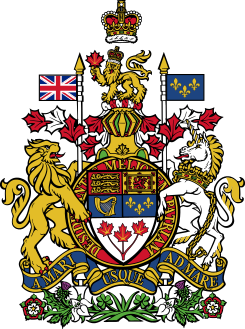 |
| There's a reason for those thistles and shamrocks |
A Vancouverite facebook friend of mine recently posted that she had "rhymed off" her telephone number to someone.
I leapt on it, as I am wont to do. "Did you know that 'rhyme off' is a CANADIANISM?" I exulted triumphantly (and felt quite smug when a few Americans chimed in to say that they had indeed been perplexed by her usage). "Ha!" said I. "Seeeeee! Other people don't use this!"
But I was much deflated the very next day when the First Law of Lexicography (The minute you make a pronouncement about a word not being used, you will be sure to hear it or see it in the mass media within 24 hours) raised its ugly head. Thanks to another facebook post, I learned that a certain Ross O'Carroll-Kelly (a name so cartoonishly Irish that it is, not surprisingly, a pseudonym) wrote this in The Irish Times:
Sorcha goes, “Oh my God, Ross, this is the most embarrassing thing you’ve ever done to me!”Was I -- gasp -- WRONG about "rhyme off"?
I’m pretty sure it’s not. I could rhyme off a list, although I’m not sure it would help the situation.
The OED did not include "rhyme off" when they revised the entry for "rhyme" in 2010. Not surprising that they overlooked it, considering that there are only two instances of the phrase (both from Scottish speakers) in the 1.6 BILLION words of British Hansard (the record of the debates in the British parliament) between 1805 and 2005. Only one example (from Ireland) appears in the 100 million words of the British National Corpus. So it certainly isn't used in English English.
The 1.9-billion word corpus of Global Web-based English has only
5 examples from the UK, three of those being definitely Scottish,
5 from Ireland,
none from anywhere else,but a significant
18 from CanadaIn contrast, in a mere 50 million words of the Strathy Canadian corpus, "rhyme off" appears 9 times.
So I think we can still claim Canadian citizenship for this word.
Or perhaps we should say Canadian landed immigrant status, because it seems we inherited it from our numerous Scottish and Irish settlers.
The New Partridge Dictionary of Slang and Unconventional English has this entry:
rhyme off verb to recite; to talk (UK: SCOTLAND) From Scottish dialect rame (to talk nonsense; to reiterate): "For one thing, rhyming off the places he'd broken into."The OED also has an entry for "rame":
Of uncertain origin.
Scottish, Irish English (northern), and English regional (northern)
To shout, cry aloud, scream; to keep up the same cry, to repeat the same thing continuously; to complain persistently.
So it would seem that "rhyme off" is actually a corruption by folk etymology of "rame off", and has nothing really to do with rhymes. Clearly, it landed on fertile soil when it arrived in Canada, where it has continued to thrive.
Tell us about YOUR usage of "rhyme off". Where are you from, and do you use it/recognize it, or not?
P.S.
If you find the English language fascinating, you might enjoy regular
updates about English usage and word origins from Wordlady. Receive
every new post delivered right to your inbox! You can either:
use
the subscribe window at the top of this page
OR
(if
you are reading this on a mobile device): send me an email with the
subject line SUBSCRIBE at wordlady.barber@gmail.com
Privacy
policy: we will not sell, rent, or give your name or address to
anyone. You can unsubscribe at any point.

I both recognize and use it--and had no idea it was a Canadianism! I was born and raised in Brantford, Ontario, as were both my parents.
ReplyDeleteThank you! I use "rhyming off" fairly regularly, but had not linked to to my Scottish ancestry.
ReplyDelete